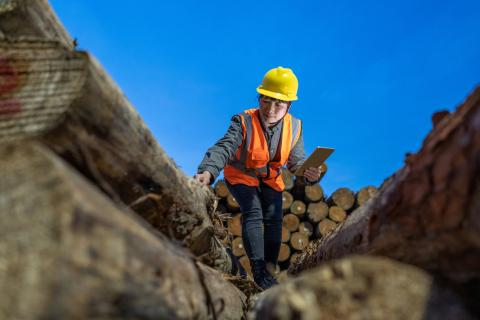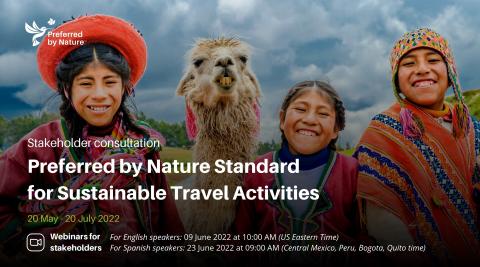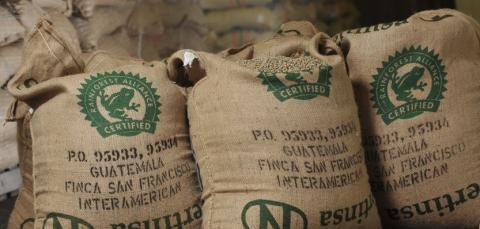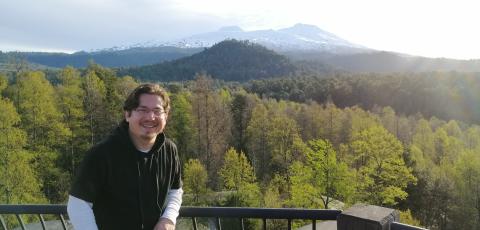Certified, but not for the money
FSC is normally seen as a market-driven tool to support responsible forest management, creating incentives in terms of market access or price premiums; however, for some forest owners there are quite different benefits at stake driving the decision to be FSC certified.
In 2003, Gran Canarian forests were the first natural forests in Spain to achieve FSC certification.
This year, the scope of the certificate was expanded to cover a four times larger area, despite the fact that no certified timber has ever been sold from the area.
Immaterial assetts of FSC
The Environmental Agency of Gran Canaria - El Servicio de Medio-Ambiente del Cabildo de Gran Canaria – belongs to an exclusive group of only 11 FSC certified forest operations worldwide: they have all invested in FSC certification without adding the chain of custody certification that enables the operation to sell the harvested timber as certified.
Why is the Gran Canarian forest service strengthening its commitment to FSC certification without any direct market reward in sight?
"Our most important motivation is our wish to implement an effective management system that is socially, economically and environmentally responsible. FSC forest certification as a benchmark enables continuous improvement of our management system based on external evaluations", says Carlos Velazquez, Forest Management and Planning Coordinator of the Gran Canaria island government.
“In addition, the certification process has proved helpful in several other ways. For example, it has resulted in improved co-operation between departments and provided access to funding for the elaboration of our forest management plans. And most importantly, it has helped resolve long-standing issues with the private forest owners”, states Mr. Velazquez.
The certificate is a group certificate led by the government’s Environmental Agency, including both public and private forest properties in the Inagua area in the central part of the island. A part of the area is designated as Nature Reserve, where harvesting is excluded. Some timber harvesting takes place in the surrounding areas. Some products are given to the local communities.
Improving stakeholder relations
The relationship between the local government and the private forest owners has historically been difficult and complicated. “The certification process has been essential in bringing stakeholders together and creating a fresh starting point for fruitful dialogue”, explains Mr. Velazquez. “It serves as ‘neutral ground’ for exploring solutions among the parties, and helps transform old, negative perceptions about the authorities among the rural population”.
One of the topics dividing the Gran Canarians is the definition of proper forest mangagement. As part of the certification expansion audit, a field visit was organised, engaging stakeholders in discussions that resolved most issues by reaching consensus, although two issues remain to be fully solved: the proper management of free-roaming feral cattle and goats, and the protection of a very rare bird species.
A high number of feral livestock animals constitute a threat to the ecology of the area, and the population needs to be controlled. On the other hand, there are also some animal welfare and conservation aspects, including the belief that some of the goats may be of a wild, pre-Hispanic race.
The other point of contention is the conservation of a small bird – the extremely rare and endangered Gran Canarian Blue Chaffinch.
A well-developed understory would provide optimal habit for the bird. However, understories make fire prevention more difficult, which causes some stakeholders to oppose the idea.
“Discussions are still on-going”, explains Mateo Cariño Fraisse, certification coordinator and FSC auditor at NEPCon. “However, it is clear that stakeholders are now engaged in a constructive dialogue”.
Diversifying tourism assets
Gran Canaria is a famous tourism destination wtih thousands of tourists enjoying the coastal area with its sandy beaches and sunny climate each year.
The island's authorities are looking to develop tourism activities away from the beaches, and they know that well-managed forests harboring unique species are attractive for many eco-tourists.
Mr. Velazquez is convinced that the certification can help in this aspect as well. "Many visitors are aware of FSC, and the certification sends a strong signal that the forest’s natural heritage is being well looked after", he says.



